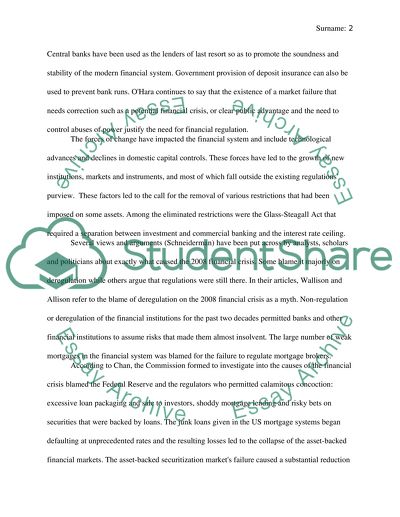Cite this document
(“Effects of Regulation/Deregulation in the Recent Financial Crisis Assignment”, n.d.)
Effects of Regulation/Deregulation in the Recent Financial Crisis Assignment. Retrieved from https://studentshare.org/finance-accounting/1686683-effects-of-regulationderegulation-in-the-recent-financial-crisis
Effects of Regulation/Deregulation in the Recent Financial Crisis Assignment. Retrieved from https://studentshare.org/finance-accounting/1686683-effects-of-regulationderegulation-in-the-recent-financial-crisis
(Effects of Regulation/Deregulation in the Recent Financial Crisis Assignment)
Effects of Regulation/Deregulation in the Recent Financial Crisis Assignment. https://studentshare.org/finance-accounting/1686683-effects-of-regulationderegulation-in-the-recent-financial-crisis.
Effects of Regulation/Deregulation in the Recent Financial Crisis Assignment. https://studentshare.org/finance-accounting/1686683-effects-of-regulationderegulation-in-the-recent-financial-crisis.
“Effects of Regulation/Deregulation in the Recent Financial Crisis Assignment”, n.d. https://studentshare.org/finance-accounting/1686683-effects-of-regulationderegulation-in-the-recent-financial-crisis.


